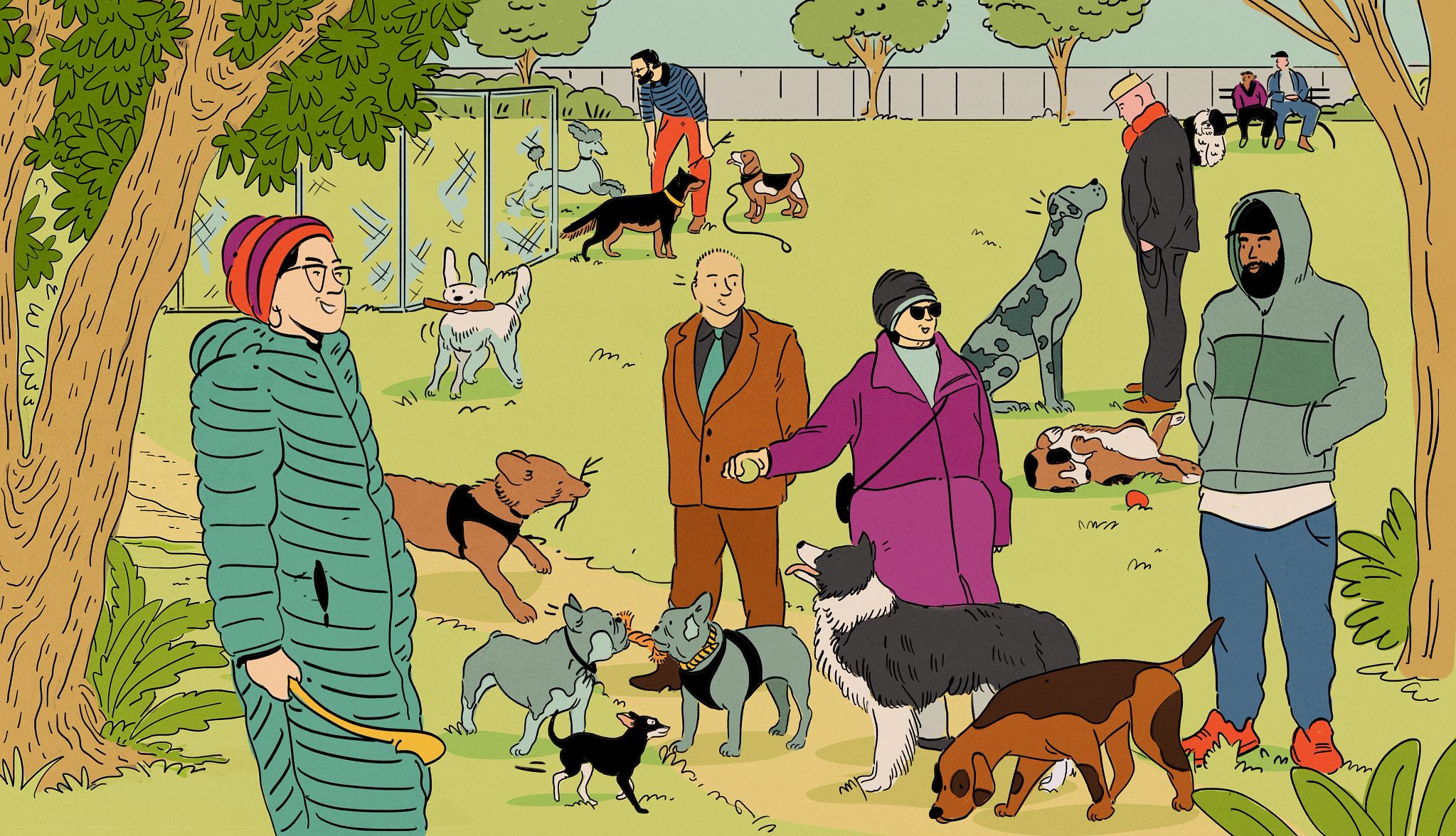AARP Hearing Center


Not so long ago, I was just another middle-aged suburban dad without much of a social life. I had a few old friends from college I kept in touch with, and a handful of married friends that my wife and I saw at dinner parties every month or two, but that was about it.
I’m not atypical. According to a University of Michigan poll published in December, more than a third of Americans between the ages of 50 and 80 feel lonely. I know that social isolation can age you, and having friends actually makes you healthier. But I’m a busy guy. Who has time to make new friends? Certainly not me.
But that was last year. Today, I have around 30 close friends that I see every day. And most of them know more about me than my therapist.
What changed in a handful of months? Simple. I adopted a dog.
Her name is Addie, short for Addison. She’s a shelter dog, a mix of Lab and Belgian shepherd, and the friendliest, lovingest dog that ever lived. She’s also alarmingly smart. So smart that my wife and I are worried that if we’re not careful, she’ll talk us into a timeshare.
Our main reason for getting Addie is my wife and I are both over 50 and way too sedentary. A dog, we reasoned, would get us out of the house and moving our middle-aged bodies. And that’s exactly what happened. But more than that, Addie got me to the dog park just a few blocks from our house in Evanston, a suburb of Chicago. It’s a huge open field where dogs can run leash-less, and their owners can wait on the sidelines and look at their phones.
Or at least that’s what I thought would happen. I couldn’t have been more wrong.
Dogs are the ultimate conversation starters
The worst part of trying to make new friends as an adult is the small talk. Walking up to a complete stranger and asking them random questions just feels forced and weird. “Sure is a lot of rain we’re having lately, huh? Anyway, what do you do for a living?” Blergh.
But dogs are an excuse to talk to someone without the usual social awkwardness. Because people love talking about their dogs. They love answering questions and sharing intimate details about everything from training to breeds to poop schedules.
It’s not the same with kids. When I watched my son play at the park as a toddler, other parents wouldn’t ask probing questions about him. That would’ve been creepy. Can you imagine walking up to another parent, pointing to his or her child, and asking, “Is he a biter?” Or, “Does he have a little Irish in him? His coloring is so interesting.” They’d call the freaking cops on you!
But those intimate questions are not only allowed in a dog park, they’re encouraged.




































































You Might Also Like
Animal Chaplains Help After the Death of a Pet
The growing profession helps older adults process their grief
Insider Secrets from a Top Veterinarian
15 tips on giving your pets the best care
I Laughed Off Teen Angst and It Worked
When all else failed, this writer got goofy